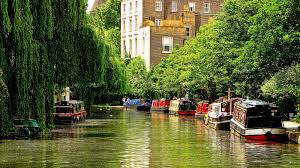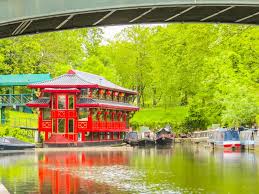思想的远行
我的随笔
正文

英国是高贵的,我有些大言不惭的标示自己是爱英国的人,英语叫Anglophile。
会有人没有去过英国就成为Anglophile的吗?我不知道。但是,有很多人,在那里住过,离开了,就会念念不忘,我就是其一。
那种感觉,有很多Anglophile写过,我最喜欢的是桑塔亚纳,我自己也写过不少,其中一篇叫《查令十字街84号 》。今天又想起写一下,是因为在最近的一期金融时报里,有一个叫Joshua Chaffin的人写了一篇叫做“What I miss most now that I’ve left Britain”。他在那里住了5年,回到美国。他写到:
Being deprived of Britain, for who knows how long, has only sharpened my ardour for the place. As I stew in quarantine, I find myself succumbing to a classic case of British nostalgia for all the things I miss about the good old days in your strange and wonderful land。
然后他列了一堆他想念英国的事情,其实都很琐碎的小事情。
I miss a certain breeze that would wash over the garden in late summer, instantly reminding me that I was, in fact, on an island in the North Atlantic. I miss long summer nights.
I miss the jumble of all your opposing parts and how each enhances the other — the toffs and the working class; Johnson and Corbyn; the bankers and the miners; the north and the south; Yorkshire and Lancashire; and on and on. I know you desperately want to be rid of each other. I do. But I, as an outsider, see you as a great boisterous family, and could not imagine you any other way. Really.
I miss your refusal to pathologise shyness and your tolerance of eccentricity.
I miss the Six Nations tournament, and how it carries you through the gloom of late winter
I knew they would eventually come to an end.
其实我写过的不少也是这样:运河,公园,住所周围,田野,守门人,下午茶,小街道,老朋友等等。

人是怀旧的,多年以后再去,希望一切如旧。好在英国人也知趣,很少有变化,我知道这个愿望他们会给予满足。
什么是Anglophile呢?
An Anglophile is a person who admires England, its people, and its culture. Though "Anglophilia" in the strict sense refers to an affinity for England, it is sometimes used to refer to an affinity for the United Kingdom as a whole, including Scotland and Wales. In this case the term "Britophilia" is a more accurate term, though a much rarer one.
Around 1722, the French philosopher Voltaire became an Anglophile; he lived in Britain between 1726 and 1728. During his time in Britain, Voltaire learned English and expressed admiration for Britain as a land where, unlike France, censorship was loose, one could freely express one's views, and business was considered a respectable occupation. Voltaire expressed his Anglophilia in his Letters Concerning the English Nation, a book first written in English and published in London in 1733, where he lavished much praise on British empiricism as a better way of thinking.
In 19th century France, Anglophilia was popular amongst certain elements, though not with the French people in general. The popular Catholic royalist intellectual Charles Maurras took a virulently Anglophobic viewpoint that Britain was the "cancer" of the world, rotting out everything good, especially in his beloved France. In contrast to Marruas, the conservative French art historian and critic Hippolyte Taine was an Anglophile who greatly admired Britain as the land of "civilised" aristocratic order that at the same time embraced freedom and "self-government". In his youth, Taine had felt oppressed by the Catholic Church. He had been brought up in the Church by his teachers at his lycée, and he complained that they had treated him as "a horse between the shafts of a cart".[23] At the same time, Taine distrusted the masses, saw the French Revolution as the sort of disaster caused when the mindless masses were given power, and stated that giving everyone the right to vote would be like making every sailor the captain on a ship. For Taine, Britain embodied his ideal political system that combined the best features of both order and freedom: a place where the state had limited powers yet the people instinctively deferred to the elite.[23] For Taine, the essence of la grande idée anglaise was "the persuasion that man was above all a free and moral person". Taine attributed this to the "Hebraic" spirit of the British people, which he saw as reflecting the influence of Protestantism, especially the Church of England, which Taine greatly admired. Taine argued that because the Protestant British had to justify themselves before God, they had to create moral rules that applied not only to others, but to themselves, which created a culture of self-restraint.





现在中共国还在设法洗脑老百姓,社会上流行玩尔虞我诈。
800年的落后还不止。
这套相对民主,平权系统为世界所用,为美国借鉴,创造平静,守法的国内气氛。能人都在外面折腾,回来加官进爵。